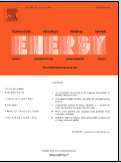Competence analysis for promoting energy efficiency projects in developing countries: The case of OPEC

17.09.2019
Energy, Volume 189, 15 December 2019, 115996
Enhancing energy efficiency is an important goal of climate change mitigation policies. Promoting energy efficiency projects in developing countries has faced several barriers, preventing optimal investments. One of the main barriers has been the lack of internationally recognized indices to compare projects across countries. In this era of global political turbulence and a looming trade-war that will likely lead to unjustified tariffs, it is critical to provide publicly available robust indices for investors. We construct the Energy Efficiency Country Attractiveness Index to evaluate countries’ competitiveness in terms of energy efficiency potentials and related investment risks to aid investment decision-making in the oil and gas sector. Our index includes 30 indicators congregated in four pillars covering political, economic, social and technological factors, combined by means of Fuzzy measures and Choquet integral according to the preferences of a panel of experts. Although experts consider the economic and technological factors as the most important elements affecting investment in the energy related projects and they are moderately tolerant following disjunctive behaviour in dealing with the political, economic, social, and technological criteria, squared correlation analysis shows that, at least for OPEC countries, the political pillar is the crucial one in shaping the composite index.
Enhancing energy efficiency is an important goal of climate change mitigation policies. Promoting energy efficiency projects in developing countries has faced several barriers, preventing optimal investments. One of the main barriers has been the lack of internationally recognized indices to compare projects across countries. In this era of global political turbulence and a looming trade-war that will likely lead to unjustified tariffs, it is critical to provide publicly available robust indices for investors. We construct the Energy Efficiency Country Attractiveness Index to evaluate countries’ competitiveness in terms of energy efficiency potentials and related investment risks to aid investment decision-making in the oil and gas sector. Our index includes 30 indicators congregated in four pillars covering political, economic, social and technological factors, combined by means of Fuzzy measures and Choquet integral according to the preferences of a panel of experts. Although experts consider the economic and technological factors as the most important elements affecting investment in the energy related projects and they are moderately tolerant following disjunctive behaviour in dealing with the political, economic, social, and technological criteria, squared correlation analysis shows that, at least for OPEC countries, the political pillar is the crucial one in shaping the composite index.
